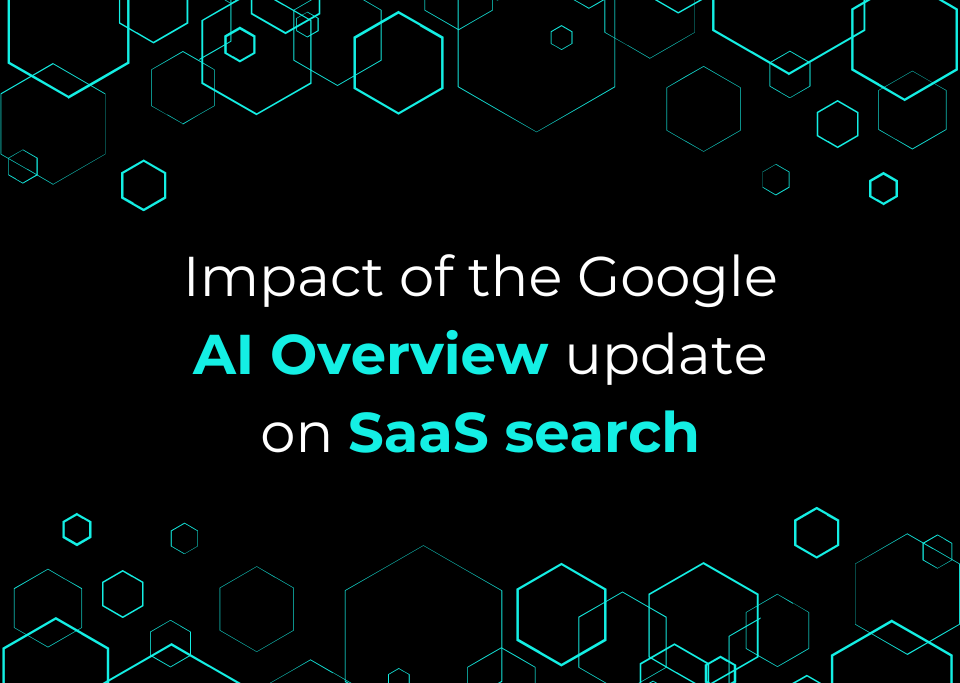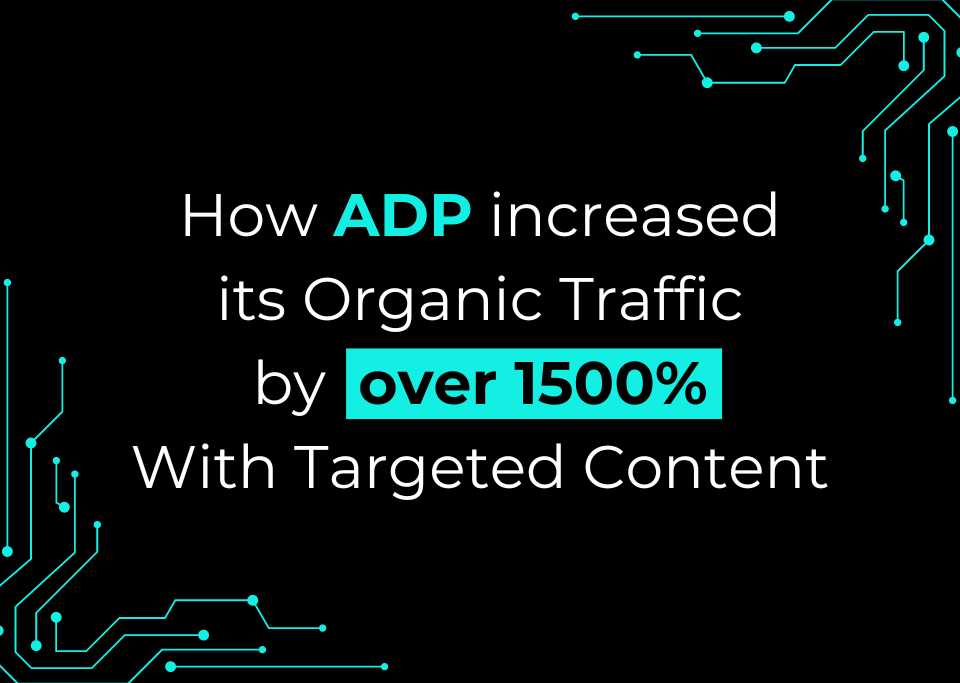15 Quick Ways to Boost Your SERP Results
SERP results are crucial to the online success of any business. If your page isn’t ranked on the first page of Google, it’s not doing you much good.
That’s why boosting SERP results is a key aim of SEO. As you might already know, there are few quick fixes in the world of SEO. Worthwhile results can only come through hard work over a long period of time.
Book a Consultation
If you’re already putting in that hard work, there are some actionable tips that can make a swift difference to your SERP rankings. We’ve drawn together 15 of those quick ways to boost your SERP results below. So you can find those that are most useful to you, we’ve split them up into four main categories:
- Keyword Tips
- Metadata Tips
- Content Tips
- User Experience Tips
Keyword tips
Keyword research is key to improving SERP results and to SEO in general. It’s not a quick or a simple process. Researching the right keywords to target and implementing that research takes time and effort. There are, however, some quick, actionable tips that you can use to get a swift boost to your SERP rankings.
Rethink your use of long tail keywords
We all know that long tail keywords are important. They are especially useful for building and directing an effective content marketing strategy. Understanding the long tail keywords associated with your niche helps you to write content which users really want.
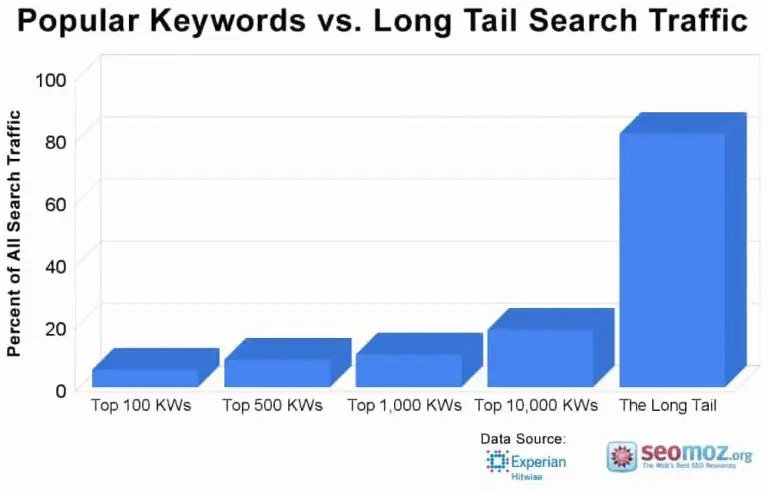
Time was that long tail keywords were also like gold dust for SERP results. Creating content for and targeting loads of long tail keywords was the way to go. It ensured that you’d have different pages ranking highly for each keyword search.
Google’s algorithms have come a long way since then. The RankBrain component of their core algorithm especially, has made a big difference. It uses machine learning to make the algorithm much smarter. Amongst other things, it can now better identify synonymous long tail keywords.
With the help of RankBrain, the algorithm will group together those keywords as amounting to the same thing. The same set of results will, as a result, be delivered on the SERPs for each keyword. That makes it far less useful to target that long list of synonymous long tail keywords.
Don’t neglect commercial keywords
Informational and long tail keywords are great for boosting organic traffic to a page or domain. Long tail keywords account for over 70% of all web searches. Ranking for them is a great way for you to get a good slice of that traffic. That doesn’t mean you should neglect other keywords.
Commercial keywords are one variety which many sites do neglect. Informational keywords start with phrases like ‘how to’ or ‘step-by-step guide’. Commercial keywords are a little different. They’ll often start with ‘best’ or ‘top’ and include words like ‘buy’, ‘review’ or ‘purchase’.
They are often more difficult to rank for than informational keywords. That’s because there’s more competition for SERP results for commercial keywords. They have high conversion rates and that’s something that companies notice.
Shifting a little bit more focus towards commercial keywords is a handy tip. The benefit is not so much about boosting SERP results. What it’s about is boosting sales and that’s what you want the high SERP ranking for in the first place.
Leverage head & body keywords
If it’s no longer as beneficial to optimise synonymous long tail keywords, you need other alternatives. Head and body keywords have a higher search volume. SEOs sometimes disregard them because they are also very competitive to try to rank for.
In order to get good SERP results for head or body keywords you may have to put in some extra effort. Content might have to be better and you may need more backlinks. Improved SERP rankings will likely take a little while to arrive.
Implementing a shift in your content marketing towards these keywords is still worth it. The eventual improved results for the keywords themselves will be marked. What’s more, Google’s algorithm will also rank your content for a number of other related keywords.
Metadata Tips
Metadata is perhaps the most often overlooked aspect of SEO. That’s a big mistake to make. There are loads of small, quick changes you can make to your metadata which can have a big impact on SERP rankings.
Use emotive language in your titles and descriptions
Titles and meta descriptions are not just for search engines. They’re what real searchers see and read on a SERP. You need your titles and descriptions to persuade those searchers to click through to your page.
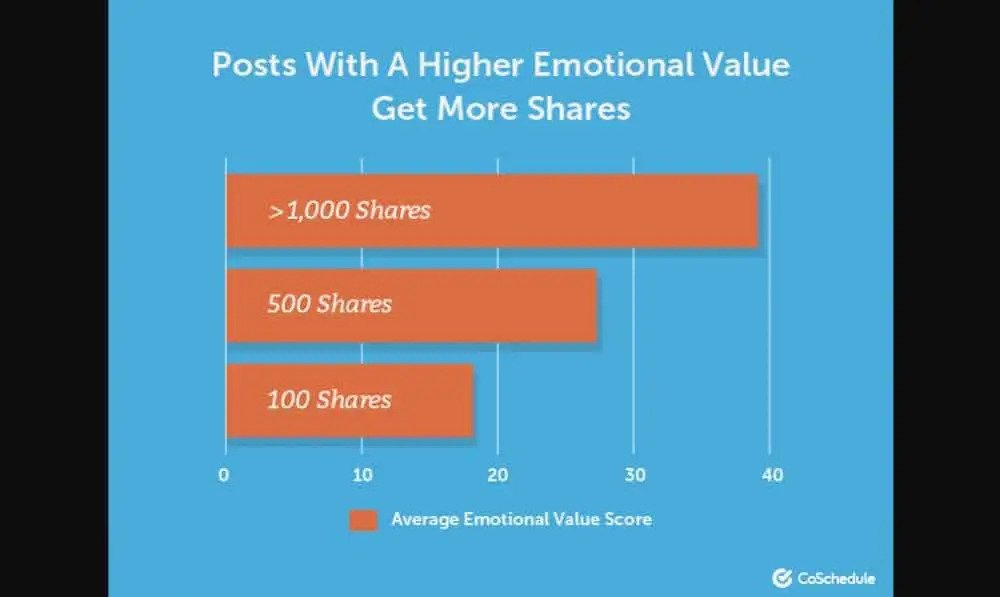
A CoSchedule study has proven that an emotional headline is more like to draw a response. The same goes for your page’s title. It is essentially the headline that’s looking to persuade a searcher to read on.
To make your titles and descriptions emotional, you need to think about your target audience. Understand their needs and motivations, and you’ll know what’s likely to elicit an emotional response from them.
Have your titles stand out
Think of SERPs like a market. There are rival stalls lined up next to one another, all competing for custom. It’s your title and description that needs to persuade a searcher to choose your content over the other available options.
To choose your page, they first need to notice it. That means your title has to stand out and grab the attention. There are a few different tricks you can use to achieve this. They include adding the following to your titles:
- Numbers and percentages
- Statistics
- Interesting characters
- Brackets
Brackets are possibly the best option. They clearly differentiate your title from the others around it. Research from HubSpot and Outbrain has found that a post with brackets in its title gets on average 33% more views.

Include benefits & details in descriptions
Why will my description make someone want to click through to my content? That’s the question you should ask yourself when writing a meta description. That way you’ll achieve a better click through rate and subsequently improved SERP results.
Don’t be afraid to put some real detail and information into your description. Outline the benefits someone will get from reading your content. Talk about key statistics and mention the supporting data you’ve drawn upon. Searchers will see that as evidence of the reliability of your content.
Don’t forget your keyword research
You will have put considerable time and effort into your keyword research. It’s how you decided what to focus your content on and how to structure it. So don’t forget about that research when it comes to creating your metadata.
The primary keyword for any page should appear in its title and meta description. In the description it should appear as early as possible. The description can also be a good place for a few related keywords. That’s as long as they fit naturally and don’t make the description unwieldy.
Content tips
Google want all content to be as useful as possible to users. Bounce rate and dwell time are two of the ranking factors that try to ensure this. That means you need your content to answer user intent and to keep a user on the page for as long as possible. The following are simple tips that can help it do just that.
Grab a reader immediately
Searchers want answers to their questions immediately. If your page doesn’t deliver them, they’ll go somewhere else. That means your content has to start delivering fast. You’ll want your first paragraph of content to be on show immediately as a page loads.
That paragraph should represent a concise and engaging introduction to the content. It should hook the reader immediately. It then needs to lay out to them exactly the benefit they’ll get from reading on. To end, it should transition quickly into the main body of your page.
Use long-form content
Long-form content ranks. The longer an article or post, the more it feeds into ranking factors related to utility and answering user intent. Long-form content is also more likely to receive a greater number of backlinks. That’s according to research by Hubspot, as shown below.
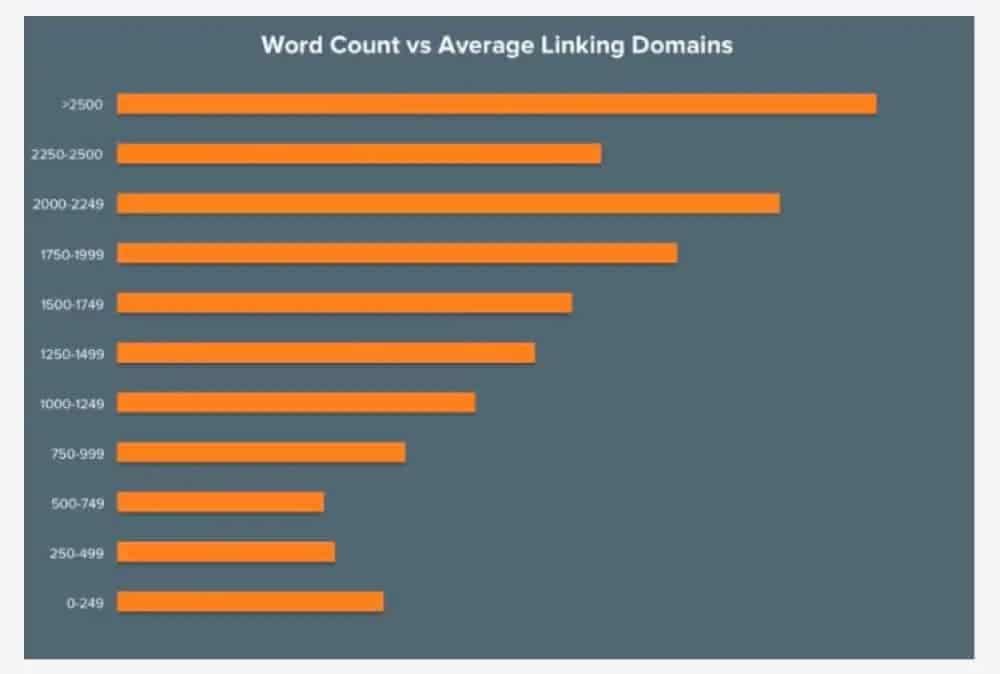
As well as delivering more links, long-form content is great for dwell time. It takes users longer to read and so keeps them at your page for a longer period of time. Whilst it’s not easy to produce, long-form content can have a hugely positive effect on SERP results.
Ensure long doesn’t mean dense
Long-form content only improves dwell time if a user sticks around and reads it. They’re not likely to do so if the content is an impenetrable block of text. They’ll run back to the SERP and find a piece of content that’s easier to digest.
That means you need to break up your content and introduce different ways of presenting information. Lists and bullet points are a good example. It’s also a good idea to have graphical displays of information and other images to keep things interesting.
Optimise headings tags
Headings are another good way to break up long-form content. They’ll make a page seem less daunting to read and point readers to what they’ll find most useful. They’re also important for a page’s crawlability by search engine bots.
For good crawlability, you don’t want to use more than one H1 tag per page. You can use other tags multiple times. What you want, is for your headings tags to make logical sense. Major sub-sections of a page should have an H2 tag. If you break those sections up further, you should use H3 and so on.
Optimise images for SEO
When using images in your content, make sure you optimise them for SEO. They’re not just there to make the content more digestible. They can also have a positive impact on your SERP results.
You’ll want the images you use to be of a manageable size or to be compressed. That will help with a page’s load speed. You also want to make sure that image titles, alt tags and descriptions are optimised with a page’s primary keyword.
User experience tips
User experience is another thing that’s important to visitors to your site and Google alike. Improving user experience should be an ongoing process that you give plenty of attention. These are some tips as to where to start when trying to improve SERP results.
Improve page speed
A study by Kissmetrics showed that 40% of people on average will abandon a website that takes more than three seconds to load. You’re bounce rate will not be healthy if you find your site to be in that boat. That’s just one reason why it’s important to improve page speed.
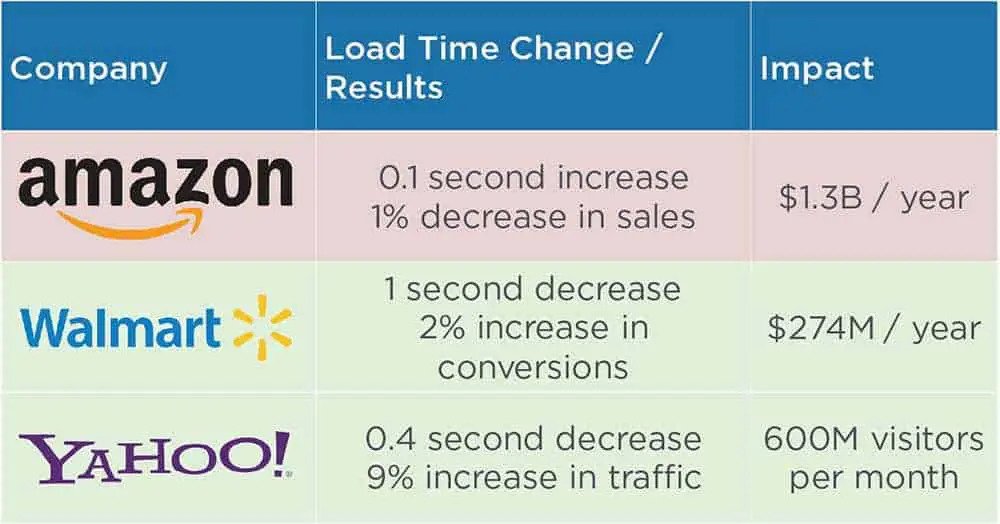
Google now include load speed as a mobile ranking factor. It’s crucial for the mobile version of your site to load quickly if you want good SERP results. On way to help with mobile page speed is by introducing Accelerated Mobile Pages (AMPs). They’re stripped down HTML pages, designed specifically to load almost instantly on mobile devices.
Fix broken links
Links are meant to guide users to more, helpful content on your site or from elsewhere. Both external and internal links also have an impact on SEO. Everything from anchor text to the page authority of content linked to is considered by Google.
That means you definitely don’t want any broken links. They’ll annoy users of your site and be viewed negatively by Google. It’s a good idea to regularly check your site’s links. You can either do so manually or by using one of many available link checking tools.
Optimise for voice search
This is a tip that will future proof your site. Voice searches are becoming more popular and that’s a trend that will likely continue. There are far more voice assistants and different smart speakers on the market today than ever before.
That makes it a good idea to try and rank for voice searches. Including likely voice search phrases in your content is a good place to start. That means using natural, conversational snippets that a real person might say to their voice assistant.
Need a hand? You can use our SEO Tools for Free or have a look at the cost of SEO.
